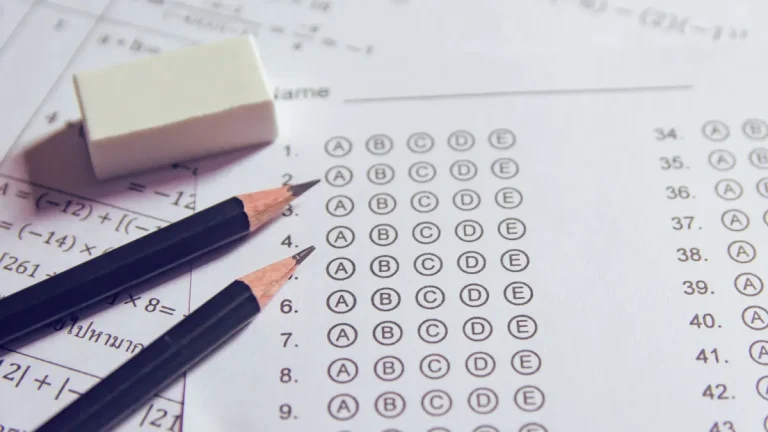More than one million learners across South Africa are gearing up for the 2025 National Senior Certificate (NSC) exams as the final school bell of the year approaches. For the Class of 2025, these matric exams mark not just the end of their schooling but a test of determination, discipline, and hope for a better future.
Thank you for reading this post, don't forget to subscribe!The Department of Basic Education (DBE) announced that the exams will start on Tuesday, 21 October, with Computer Applications Technology Paper 1, and wrap up on Thursday, 27 November.
In Gauteng, the country’s largest education hub, learners are finalizing study timetables, attending revision camps, and pushing through their last weeks of preparation before the big day.
ALSO READ: DStv Offers Matric Exam Support on WhatsApp and Live TV
Umalusi Gets Tough on Cheating
Umalusi, the national education quality assurance council, has taken a firm stance against cheating.
At a media briefing this week, CEO Dr Mafu Rakometsi condemned exam fraud as “a criminal practice that undermines the credibility of South Africa’s education system.”
He said Umalusi will send monitors to every province to enforce exam rules and protect the credibility of results. “Cheating weakens the integrity of national examinations and will carry severe consequences,” he warned.
The council urged learners, teachers, and invigilators to act with integrity and uphold the standards that define the NSC exams.
Over One Million Candidates Prepare to Write
Umalusi’s readiness audit shows that over one million learners have registered for the 2025 final matric exams across four assessment bodies.
The DBE leads with 766,543 full-time learners, followed by 23,601 learners under the Independent Examinations Board (IEB) and the South African Comprehensive Assessment Institute (SACAI). Another 137,018 part-time candidates will rewrite subjects to improve their marks.
Education officials said the registration process ran smoothly thanks to tighter coordination between provinces and schools.
Dropout Crisis Remains a Red Flag
Behind the excitement of the final exams lies a sobering truth: nearly half a million learners who started Grade 1 in 2014 will not write matric this year.
Build One South Africa (BOSA) leader Mmusi Maimane called on education authorities to confront the causes of this dropout crisis.
“Too many young people have disappeared from the system because of poverty, violence, teenage pregnancy, or frustration with underperforming schools,” he said. “They are South Africa’s missing generation — and they deserve to be seen and supported.”
In Gauteng, overcrowded classrooms and urban poverty continue to drive dropout numbers, revealing how inequality still shapes public education.
Schools Ordered to Let Every Learner Write
Umalusi reminded principals that no learner should be barred from writing. Rakometsi criticized schools that block weaker learners from sitting for exams to boost pass rates.
“The denial of registered candidates must stop. Excluding learners from their exams is both unlawful and unethical,” he said.
He urged parents and pupils to report any exclusion or irregular conduct to the education authorities immediately.
Gauteng Declares Full Readiness for 2025 Exams
Education officials say Gauteng is ready to deliver a smooth exam season. After auditing public and private assessment bodies, including the DBE, DHET, IEB, and SACAI, Umalusi confirmed that the system can handle the national rollout.
“The few concerns we found are isolated and won’t affect the credibility of the exams,” Rakometsi said.
Across the country, 9,400 centers are ready, and thousands of invigilators have completed training. Moderation teams have approved every question paper to ensure fairness and consistency.
Authorities have tightened security around the printing, transport, and storage of papers. Umalusi and provincial departments will monitor every stage of the process to prevent leaks and irregularities.
Communities Asked to Protect Learners and Exams
Umalusi appealed to South Africans to protect learners’ right to education during the exam period.
In past years, some communities used exam time to stage protests, disrupting testing. Rakometsi urged them to act differently this year.
“Communities must not turn exams into bargaining tools for protest,” he said. “Every South African has a duty to make sure no learner is disrupted or disadvantaged.”
The DBE echoed this message, calling on parents, civic groups, and community leaders to help maintain calm and safety around exam venues.
Marking and Results Timeline
Marking starts on 15 November and ends on 18 December 2025. The Class of 2025 will receive their results on 9 January 2026, and certificates will follow within three months.
Umalusi will oversee marking, standardization, and verification to ensure accuracy and fairness across all assessment bodies.
Gauteng’s Commitment to Education Excellence
For Gauteng’s learners, these exams test more than academic ability; they measure persistence in a system still battling inequality and resource shortages. Yet, Gauteng continues to lead nationally, producing the highest number of bachelor’s passes and top achievers.
With 100% invigilator coverage, tight security, and efficient coordination, the Gauteng Department of Education says it is “all systems go” for the 2025 finals.
Education analysts say Gauteng’s consistent performance strengthens its reputation as South Africa’s academic leader, feeding universities, colleges, and industries with the skilled youth needed to drive growth.
Standing Behind the Class of 2025
As the countdown continues, teachers, parents, and communities are rallying behind learners. Creating quiet study spaces, offering encouragement, and helping learners manage stress can make a real difference.
For learners, consistency and focus remain key. Study groups, revision camps, and practicing past papers still deliver the best results.
Let’s stand with the Class of 2025 as they close this chapter and prepare for what comes next. Education remains Gauteng’s greatest investment, and by protecting exam integrity, promoting discipline, and empowering learners, we can help this generation enter 2026 ready to lead, innovate, and build a brighter future for all.




